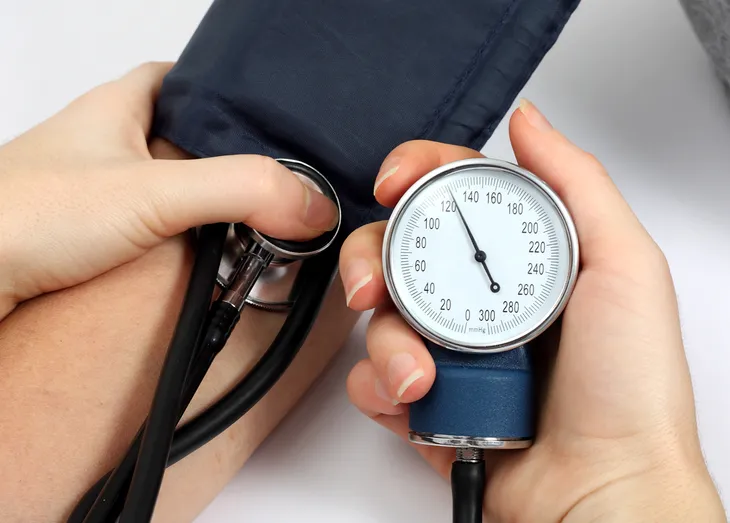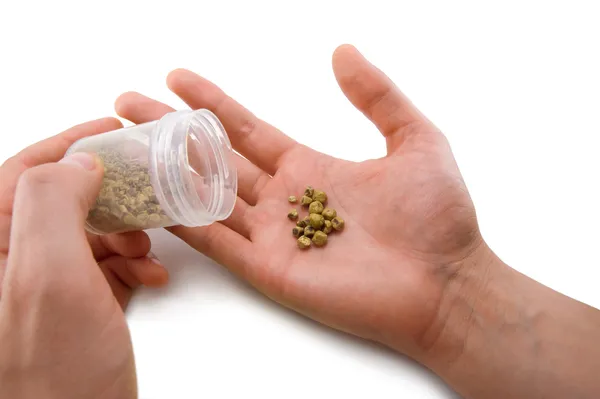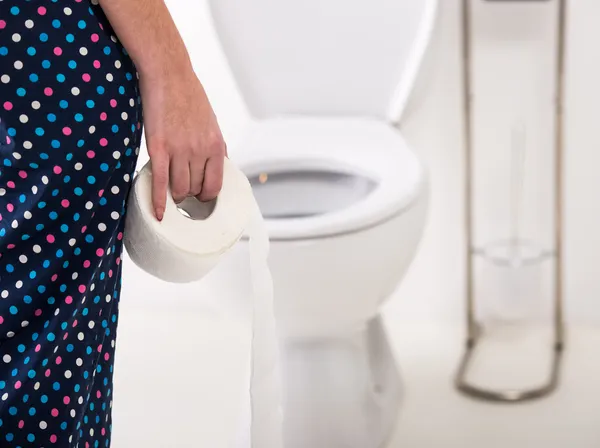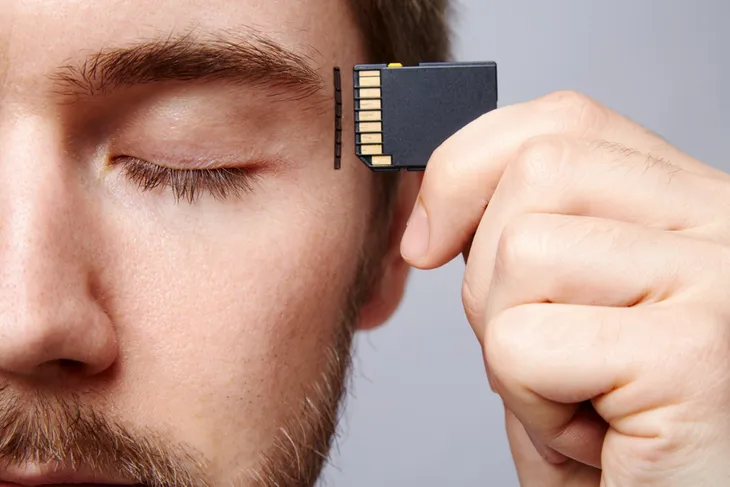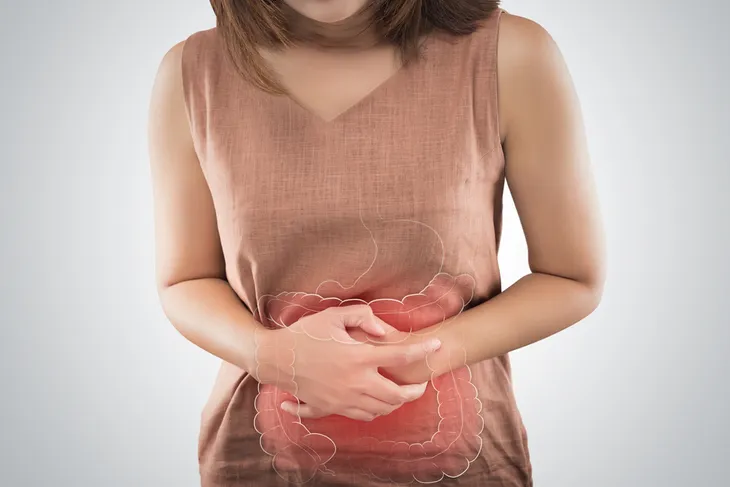It’s not hard to eat a lot of salt. Look a little closer at the foods you’re eating on a regular basis, you might be surprised to find out how much sodium you’re actually eating! It has a way of sneaking up on us because a lot of the time it’s hidden in our food. The general rule of thumb to follow is: anything that is man-made or processed has salt in it and most of the time, it’s a lot.
The Government of Canada suggests the average Canadian eats about 3400-mg of sodium every day which is more than double the amount necessary. While we all need a little bit of salt in our diet to maintain a balanced body, most people get way, way too much of it which has lots of damaging repercussions. The human body is a fascinating thing and because our mind and body are so linked, it often has a funny way of telling us when something is wrong. When it comes to sodium, here’s a look at some of the strange signs that could indicate you’re eating too much salt.
Excessive Thirst
You might have noticed that you’re really thirsty after eating salty food. That’s because salt makes us thirsty! Sodium plays an important role in balancing out our bodies fluid, so the more salt we eat, the thirstier we get. The reason we get thirsty is because our brain is reacting to the amount of sodium in the body. Mandy Enright, R.D.N., a nutritionist and fitness trainer in New Jersey told Women’s Health about the effect of salt on our bodies and pointed out that a small amount of salt is necessary for the body, but there is such a thing as too much. “We need some salt intake each day to help maintain water balance in the body. The sodium found in salt helps keep fluid inside our cells,” she says.
LiveStrong explains that the body works to maintain a concentration of sodium in the body, so when it notices there is too much, it kicks into high gear to balance it back out. This is where the thirst comes into play. If we drink more water, it will dissolve the sodium and lower the concentration. “The kidneys help accomplish this goal by excreting less urine. At the same time, receptors that sense the sodium imbalance tell your brain to trigger the feeling of thirst,” writes the source.
You Suffer From High Blood Pressure
One of the scariest things about high blood pressure is that it often doesn’t present any signs or symptoms, so someone can have it and not even know! High blood pressure puts people at risk for stroke, heart attack, kidney problems, and heart disease. So how does it happen? Well high blood pressure can be brought on or made worse by eating too much sodium.
As we previously mentioned, salt plays an important role in the body’s fluid. Too much sodium can increase the amount of water in the body, which then increases the amount of blood. LiveStrong warns that the extra blood puts pressure on the vessels, pushing against the vessel walls which then causes high blood pressure or hypertension.
Your Food Tastes Different
This seems strange, but it’s true! Eating too much salt can actually affect how other food tastes. It basically makes any food that doesn’t contain salt, seem really bland. Enright told Women’s Health that a sodium-heavy diet can tweak the taste buds over time. It’s like a sugar high, you’re constantly chasing that same salty taste. “Many people may not realize how much excess sodium they are taking in as a result of changing or dulling taste buds from excess salt exposure,” she says.
This one goes hand-in-hand with food tasting differently. Too much sodium in a person’s diet causes them to crave salty food which isn’t surprising since everything else tastes pretty bland to them! If you’re having trouble eating and enjoying food that doesn’t contain salt, May Loo, M.D., retired Northern California-based integrative paediatrician and Stanford professor told Parents that herbs and spices can help. Try adding parsley or pepper to a meal instead of salt. This will enhance the flavor without the risk of too much sodium.
Experiencing Brain Fog
Many of us have had those days where we just don’t feel clear or alert. Most of the time we credit it to a lack of sleep or possibly not enough to eat, but it could also be due to something we’re eating — salt. Reader’s Digest presents the evidence of a 2011 Canadian study which looked at 1,200 sedentary adults who ate a high-sodium diet and found that they were at a higher risk for cognitive decline. These results were up against adults who did not eat a high sodium diet.
Frequent Urination
A 2017 study found that older adults who consumed too much salt were urinating more frequently. They study had these adults cut back their salt by 25-percent which resulted in less frequent trips to the toilet in the night. “This work holds out the possibility that a simple dietary modification might significantly improve the quality of life for many people,” said Dr. Matsuo Tomohiro from Nagasaki University in Japan when talking to Medical Daily.
LiveStrong also writes that because the kidneys are responsible for processing salt and they excrete sodium through urine. Not surprisingly, when there is too much salt in the body, it means the kidneys have to process more salt and produce more urine. In addition to this, eating lots of salt causes excessive thirst which means that person is likely drinking a lot of water. This could also increase urine production.
You’re Bloated
Nobody likes the feeling of being overly bloated. It makes our clothes and skin feel tight and uncomfortable, and we are just yucky overall. If you’re feeling overly bloated it’s most likely due to something you ate, particularly if it was a meal or snack that contains lots of sodium. “When there is too much sodium floating around the blood, water leaves the cells, causing swelling,” says Mandy Enright to Women’s Health.”Extreme levels of sodium, followed by excess levels of fluid to balance it out can lead to bloating, particularly the belly area.”
You might be surprised to learn that our belly’s aren’t the only place we can experience swelling after eating too much salt. It can also happen in our fingers and toes! This swelling is commonly referred to as edema, writes LiveStrong. If you’re feeling a little puffier than normal, try cutting back on salt. LiveStrong also notes that it can be treated by elevating the affected part of the body, or by getting a little bit of exercise and moving around. If it’s severe and doesn’t go away, seek medical attention.
You’re Getting Kidney Stones
Eating too much salt has a direct effect on the kidneys. It raises the amount of sodium in the bloodstream which makes it harder for them to remove water. Reader’s Digest writes that too much salt can “increase the amount of protein found in your urine. More protein in the urine is a ‘major risk factor’ for kidney disease.”
Reader’s Digest also notes that a high sodium diet can increase the risk of kidney stones. Eating lots of sodium will increase the amount of calcium in the urine and kidney stones are formed when chemicals in the urine, like calcium, become too concentrated and crystallize. These crystals can grow in size and will eventually need to pass through the urinary tract which can be quite painful! “If you have excessive kidney stones or pain, you should see a doctor and work with a nutritionist to change a low sodium diet,” writes the source.
Dark Colored Urine
Not surprisingly, our bowel movements can tell us a lot about what we’re eating and our overall health. For example, urine that is dark in color and has a strong potent smell can mean that a person is eating too much salt. “Dark, yellow urine with a strong smell is very common in people of all ages with high sodium intake, children included,” says Craig Peters, M.D., chief of pediatric urology at Children’s Health and professor of urology at UT Southwestern.
If you suspect this might be happening to you, a doctor can always perform a urine test called urinalysis for confirmation, writes Parents.
You Suffer From Headaches
We’ve all experienced a headache before. Everyone gets them from time to time and every time one occurs it definitely doesn’t mean it’s a result of too much salt. Most of the time they’re due to something else like being tired, stressed, sick, or something like too much sun. But someone who is experiencing a headache for seemingly no reason and often, it could be due to your diet.
Mandy Enright told Women’s Health that salt causes the blood vessels in the brain to expand which leads to pain. “Too much salt can cause blood vessels in the brain to expand, which can lead to painful headaches,” she says.
Trouble with Memory
Are you having trouble remembering things or taking in information? In addition to suffering from what’s called a “brain fog” which we already discussed, people who eat too much salt will also have trouble with their memory and could increase their risk of later developing dementia or cerebrovascular diseases. WebMD cites a recent study that shows a link between high-salt diet and memory and thinking problems. The study was conducted on mice, but there’s also other research that was done on humans which also provides proof. The study conducted on mice found that an increased diet of salt (about 8 to 16 times the normal amount) over the period of 8 to 12 weeks created clear cognitive problems in the mice. “It got harder for them to get through mazes. And they couldn’t build a nest as well. These behaviors are all central to a mouse’s interaction with the world,” writes WebMD. The source also notes that for humans, a similar impact would translate to “memory problems, disorientation, not being able to get dressed, cook, pay bills, or do other everyday things.”
The study also found that when the mice were fed too much salt, their body began to produce large amounts of Th17, “a type of white blood cell involved with the immune system. This led to a rise in levels of another component of the immune system, a protein called IL-17.” Costantino Iadecola, MD, a professor of neurology and neuroscience at Weill Cornell Medical College in New York City and the study’s lead researcher said this would cause similar problems in humans because “when the body produces too much IL-17, it can no longer supply enough of a chemical called nitric oxide, which is made by cells lining blood vessels.” When nitric oxide drops, it affects the blood flow to the brain. This study was a huge game changer because it presented the idea that salt not only affects high blood pressure, but could be responsible for other medical conditions like multiple sclerosis, autoimmune diseases, inflammatory bowel disease, and rheumatoid arthritis.
Weight Gain
The Centers for Disease Control and Prevention (CDC) estimates that the average American adult gets about 3,400-grams of sodium each day but the American Heart Association recommends the average adult shouldn’t get anymore than 1,500-milligrams per day. Yikes!
WebMD says there have been several studies which have found that a high sodium diet leads to obesity. For example in 2015, British and Chinese researchers found that a high-salt diet causes body fat on children and adults to increase. “Eating an extra gram of salt each day increased the risk of obesity in children by 28-percent and in adults by 26-percent. The study authors said they don’t know why salt has this effect, but other studies suggest it may change the way our bodies burn fat,” writes WebMD.
The same source cites two other Australian studies. One linked high-salt diets to a 23-percent increase in obesity in school children and reported that the children said they ate more salt because it tasted good and the researchers speculated that because salt makes a person thirsty, these children were drinking more high-calories sodas. There was another Australian study in 2016 by Russell Keast, PhD which linked a 11-percent rise “in the amount of food and calories that adults take in. The authors say salt improves the flavor, and that likely tempts people to eat more.” WebMD notes that more study needs to be done on the subject to fully understand the role salt plays in weight gain.
Stomach Ulcers
Reader’s Digest lists stomach ulcers as one of the risks of eating too much salt. The source credits this to a study published in the journal Infection and Immunity which found that stomach ulcers and cancer in animals can be linked to too much sodium. It also notes that more research is needed on the topic in order to make definitive claims, but warns that people should be wary about salt and the damaging effect it can have on the stomach’s lining.


